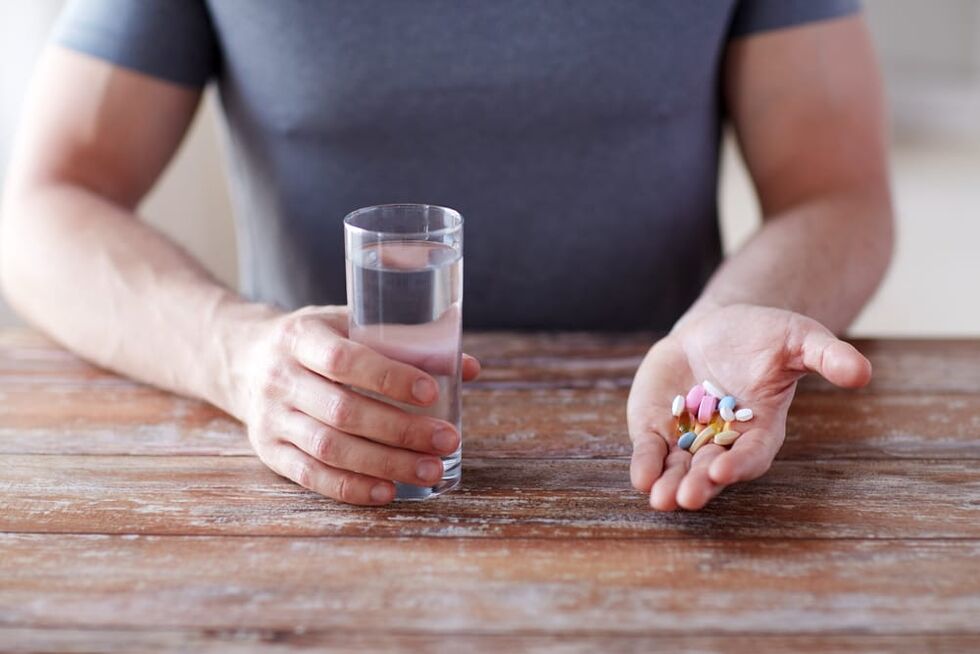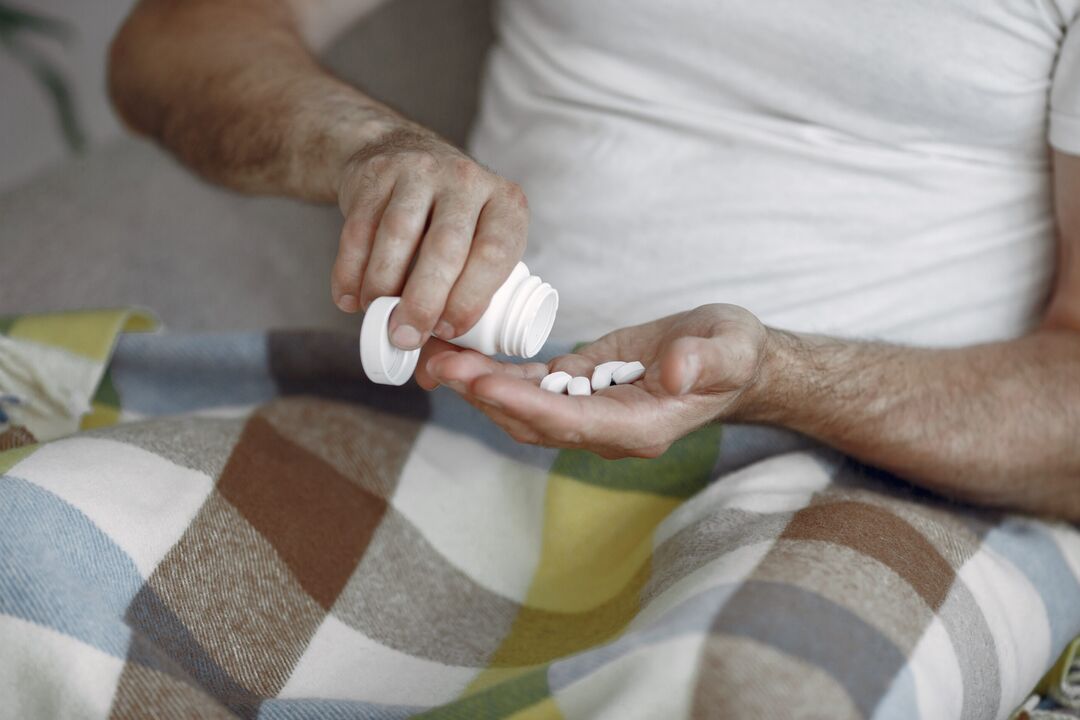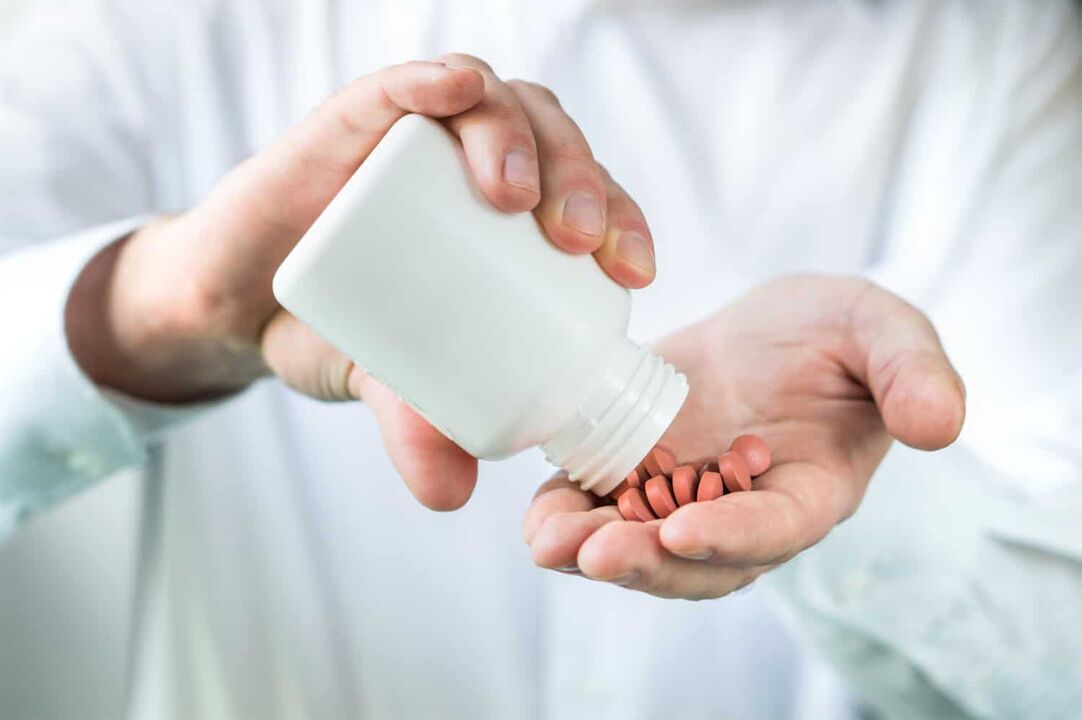The male reproductive system, like other internal organs, needs nutrients. At the same time, men do not have enough vitamins to improve their potential. Let's talk about which one needs more than the others.
In fact, a sexually mature and generally healthy man without bad habits should not worry about it. If you eat right and exercise, it is likely that everything is fine with your reproductive health.

When to worry:
- Constant tiredness, feeling tired;
- Nervousness, mood swings;
- erection problems;
- Decreased sexual desire;
- Appearance of excess weight, loss of muscle mass;
- swelling, pain and tenderness of the mammary glands;
- Painful urination, burning in the groin and penis.
If so, you have a direct path to a urologist-andrologist. Most likely, he will advise the necessary bioadditives. Always consult your doctor about the necessary medications and their dosage!
Vitamins important for male potency
Here we list the substances that really play an important role in men's health.
sink
Recommended daily dose: 11 mg.
Casanova became famous as a woman for one reason: she ate two dozen oysters a day. What is so special about them? Lots of zinc.
It has now been proven that men who consume enough of this mineral have stronger sexual desire and better potential. The fact is that in the presence of zinc is produced testosterone, the main male hormone.
A study by a well-known company found that men with zinc deficiency doubled their testosterone levels by taking special supplements for six months.
Another 8-week follow-up also reported a positive effect of zinc supplementation.
What does it mean? Most likely, the cause of potential problems is zinc deficiency, if there are no more significant symptoms. But it is better to take tests and get a doctor's advice.

Vitamin B12
Recommended daily allowance: 2, 4 mcg
Vitamin B deficiency, known as cyanocobalamin, is associated with erectile dysfunction. This is stated, for example, in the latest report of the university.
The exact cause has not yet been explained, but B12 is important for overall health because it is involved in cell metabolism and hematopoiesis - both of which are extremely important for spermatogenesis and normal erection.
L-arginine
This amino acid has an important function: L-arginine is metabolized to nitric oxide (NO), which in turn plays an important role in the mechanism of vasodilation - relaxation of blood vessel walls. It is with the participation of NO that an erection takes place.
Vitamin D
Recommended daily allowance: 600 IU
Sun vitamin will definitely brighten your sex life in both men and women.
A 2014 study found that approximately 2/3 of the 143 men diagnosed with erectile dysfunction had low levels of vitamin D. People with severe ED have about 24% less vitamin D than those with light ED.
The current hypothesis is that vitamin D deficiency leads to poor vascular tone and nitrogen monoxide deficiency.
Vitamin C
The main "immune" vitamin actually has many functions in the body. Among other things, it is involved in spermatogenesis, increasing the concentration of sperm in ejaculation.
However, filling in vitamin C deficiency is quite simple: eat as many raspberries, strawberries, blueberries and fruits as possible. They contain anthocyanins - multi-colored glycosides that reduce oxidative stress and inflammation in the blood vessels.
Magnesium
Recommended daily dose: 400 mg.
The health of the cardiovascular system, which is necessary for every man at any age, is a very important mineral for muscle development.
A study conducted by Turkish scientists compared the level of reproductive health of athletes and physically inactive people. As a result, 22 mg is taken. For 4 weeks, magnesium per kilogram of body weight increased testosterone levels in both groups.
There are two more studies: one looked at the effects of magnesium in older men (65+) and in the younger group (18-30). Both independently concluded that testosterone levels (as well as muscle strength) were related to magnesium levels in the body.
Folic acid
Recommended daily allowance: 400 mcg

It is widely prescribed to women in early pregnancy. Men need it mainly to improve the quality of the seed. Folic acid deficiency has been shown to lead to a large number of spermatozoa with chromosomal abnormalities. Therefore, it is an important trace element in the treatment of male infertility and weak potential.
L-citrulin
This amino acid acts as a pill, relaxing the smooth muscles of the walls of blood vessels. In the body, it is converted into another organic compound - arginine, which is involved in blood circulation.
For example, watermelons contain a lot of citrulline, but sometimes men are advised to take it as a supplement. The main problem with this substance is the lack of an accurate dose that will affect reproductive health.
Quercetin
This bioflavonoid has a strong antioxidant effect on the body. Among other things, it inhibits the production of the enzyme 5-lipoxygenase, which removes some of the testosterone circulating in the blood.
Theoretically, everything is clear, but in practice quercetin is still in the category of dietary supplements, because the therapeutic effect is not entirely clear.
Selenium
Recommended daily norm: 75 micrograms.
Liver, oysters and Brazil nuts contain large amounts of this mineral, and men's health needs it mainly because it is involved in the production of sex hormones.
It should be noted that you need very little of it, but even a small deficiency will harm reproductive health.
A study by American scientists on infertility and low testosterone found that the group of patients had consistently low levels of selenium compared to the fertile group. Mineral intake increased the chances of a successful conception by an average of 56%.
Another study involving 69 infertile men looked promising: participants improved sperm motility.
Vitamin A
Recommended daily allowance: 900 mcg.
Retinol (vitamin A) and carotenoids have one important feature: they both improve sperm motility. In the study, scientists found that men who ate a lot of carrots improved sperm count by about 6, 5-8%.
D-aspartic acid
Amino acids are generally a superhero team for our health. Our muscles, internal organs, blood cells and hormones are built of this "brick". One of them is D-aspartic acid. It is also involved in the synthesis of testosterone, improves erection and increases libido, as well as sperm quality.
Niacin
Recommended daily dose: 16 mg.
Since we are talking about libido, it is necessary to mention niacin, ie vitamin B3. It is abundant in fish, seafood, beef and liver.
Niacin plays an important role in sexual intercourse. At least research says so. In addition, it was found that men with low potency who took it significantly improved their sexual success compared to the placebo group.
Vitamin E
Recommended daily dose: 15 mg.
Vitamin E is mainly needed for blood circulation and immunity. In addition, it helps absorb vitamin A and many other substances. Animal studies have shown its importance for libido and testosterone production.
kapsaisin
The substance that warms the chili is also useful for potency. In animal studies, capsaicin has been shown to affect male genital size. In addition, it helps reduce the layer of fat on the abdomen, which is very important for the potential.
An observational study in France found that spicy foods also affected testosterone levels. So, if you haven't been interested in spicy foods before, it's time to fall in love with them. Of course, if there are no contraindications, such as ulcers or GERD.
How to choose vitamins for potency
Thus, we realized that several types of substances are needed for men's health:
- spermatogenesis activators;
- Strengthening immunity;
- Effects on cardiovascular health;
- Improving the conduction of nerve impulses.
However, it is not necessary that the multivitamin complex contains all these substances. Let's repeat what we said at the beginning: your doctor should choose the best vitamins for potential. The choice should be based on the diagnosis and nature of the problem, as well as the test results.
In addition, vitamins are often only part of therapy, and the disease must be treated with completely different drugs.


























